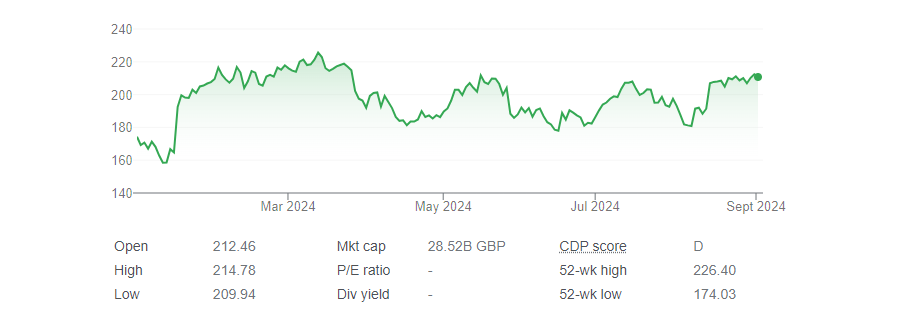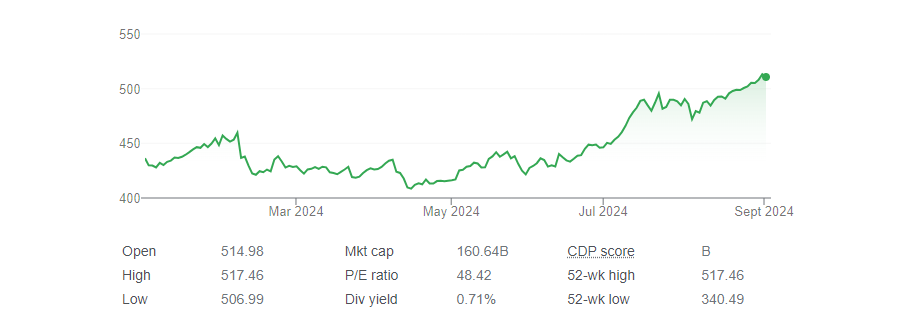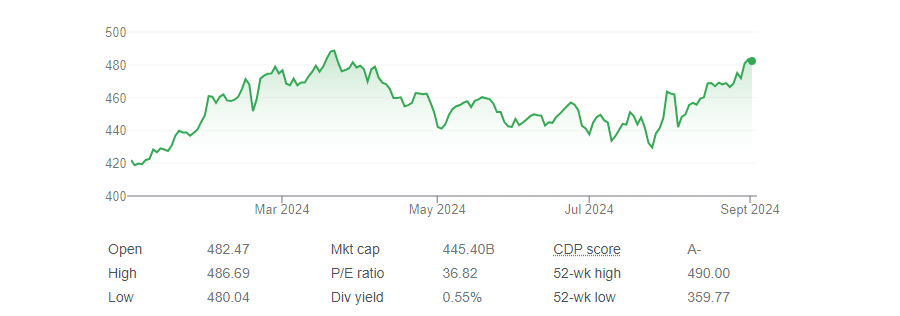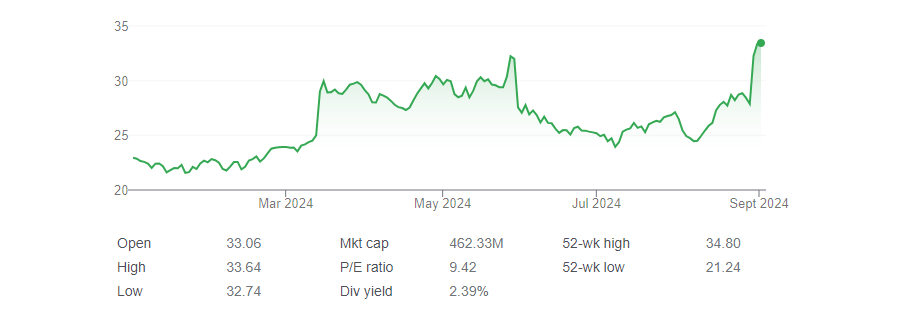Despite significant turbulence in the US stock market in recent months, including one of the worst days for the S&P 500 on record on 5 August, many stocks have thrived and managers are taking note.
Mastercard and S&P Global have been solid performers this year but lesser-known companies such as Flutter and Build-a-Bear have delivered stronger returns and are garnering stockpickers’ attention.
Four managers told Trustnet about their highest conviction US holdings, highlighting those that have done well during 2024 and those with the best potential to deliver sustained growth.
Flutter
Jonathan Guinness, manager of the £940m Fidelity American fund, identified online gambling platform Flutter as one of his preferred holdings.
Having successfully shifted from a fantasy sports site to a wider betting platform, Guinness credited the company for its organisational model, which allowed it to achieve significant market share.
Indeed, recent data supports this, with the share price up by almost 20% year-to-date, currently hovering around $210, and the price-to-earnings ratio (P/E) for FY Dec 2026 sitting at around 19x.
Flutter’s share price performance YTD

Source: Google Finance
“The US market loves a structural winner and Flutter is well positioned amongst competitors,” Guinness said.
Furthermore, the stock has enticing long-term growth potential. Flutter’s high-quality user interface and betting system have made it internationally appealing. Despite this, the stock is still trading at a “reasonable valuation”, with growth expected to compound significantly over time.
S&P Global
Next up is the global credit rating agency S&P Global, chosen by Gerrit Smit, FE fundinfo Alpha Manager of the $2.6bn Stonehage Fleming Global Best Ideas Equity fund.
S&P Global is one of his portfolio’s top holdings at 4.5%, just behind Magnificent Seven stocks such as Amazon and Alphabet.
The stock has seen significant growth this year, with the share price up by almost 17% YTD, rising to around $510.
S&P Global’s share price performance YTD

Source: Google Finance
The rise of passive investing and rate cuts in most markets are providing a tailwind for the firm’s growth.
“The IHS Markit acquisition is now well integrated, providing the group with synergies and strong portfolio diversification for continuing long-term structural growth,” Smit added.
S&P Global’s internal rating division has reported a 33% revenue increase over the past four months and the revenue outlook for the rest of the year is now up by a further seven percentage points.
For Smit, S&P Global is a strong cash-generating opportunity with ongoing growth. “It can continue to deliver over the rest of the year and the longer term,” he concluded.
Mastercard
David Harrison, manager of the Rathbone Greenbank Global Sustainability fund, is backing Mastercard.
Following a shift towards card payments over cash in the post-pandemic economy, the firm has become a “critical rail in the global payment system”, he said.
With a share price of $485, it has risen by more than 13% this year and achieved consistent double-digit returns and profit margins well above 50%.
It also boasts a P/E ratio of around 36x, which is historically quite attractive compared to the US market.
Mastercard’s share price performance YTD

Source: Google Finance
“It is a very cash-generative business and enjoys a compelling ‘flywheel’ as profits are consistently re-invested to drive future returns,” Harrison said.
Build-a-Bear
Finally, Richard de Lisle, manager of the £444.8m VT De Lisle America fund, identified toy manufacturer Build-a-Bear as a strong performer. It is his fund’s second-largest holding, representing 3.4% of the portfolio.
The stock is up almost 45% so far this year, its best performance since it entered the market in 2005.
This is a consequence of a post-pandemic change in shopping behaviour, with a greater desire for escapism meaning that over 40% of the company’s revenue now comes from teens and adults, de Lisle said.
Build-a-Bear’s share price performance YTD

Source: Google Finance
“As it becomes apparent this growth is not transient and cuddling teddy bears is more a societal need today than in the past, we expect a rise in the P/E and a continued steady appreciation of the stock,” he continued.
Additionally, the company is extremely shareholder-friendly, with a cheap valuation and very solid dividend yield, he said.
Indeed, de Lisle’s current stake in the company is now more than nine times larger than his initial investment in 2020, reflecting his increased conviction.
He concluded: “The stock seems as cheap as it has ever been, only now with less uncertainty.”





